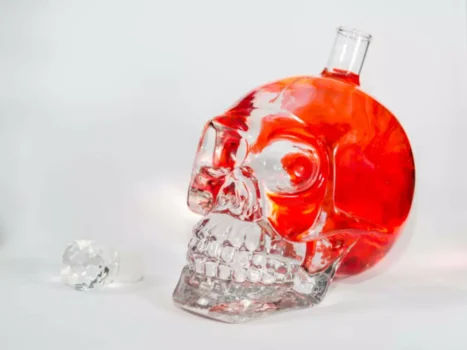If kidney disease is suspected, an ultrasound or CT scan of the kidneys may drug addiction be needed to determine the cause. AUD and alcohol use increase the risk of various health complications. These complications affect several bodily systems, including the GI, neurological, cardiovascular, and endocrine systems.
- Well, alcohol intake may lead to night sweats by speeding up your heart rate and widening your blood vessels, triggering the release of perspiration.
- Alcohol can change circuitry in the brain, and those changes can make it difficult for you to curb an alcohol habit.
- This condition occurs naturally in our bodies in response to various stimuli.
- Running into furniture, falling into a something hard, or being struck by a flying object could all leave you with bruises.
Support
In addition to filtering your blood, your liver’s job involves blood cell management. Your liver helps your blood to clot, and the liver helps blood to move evenly throughout the body. When the liver is damaged, it can no longer filter alcohol correctly, and it may not be able to keep the bloodstream healthy. According to UPMC, your liver contains about 10 percent of your total blood supply at any given time. When you’re drinking alcohol, your liver is working hard to process the toxins from your blood, but that work takes time.
Partial facial numbness after drinking alcohol.
In some cases, alcohol-induced bruising can be a sign of more severe underlying issues related to alcohol abuse or chronic health conditions. It’s essential to address any concerns with a healthcare professional. Understanding your symptoms and signs and educating yourself about health conditions are also a part of living your healthiest life. The links above will provide you with more detailed information on these medical conditions to help you inform yourself about the causes and available treatments for these conditions. Have concerning symptoms evaluated promptly to rule out underlying bleeding disorders needing treatment. You may avoid possible health problems by limiting your alcohol consumption.
Alcohol and Bruising: The Link and Risks Explained
- Alcoholics tend to bruise easily because of the blood vessels in their body breaking down.
- The cerebellum is particularly sensitive to severe alcohol consumption.
- While that’s not necessarily a direct cause of drinking, heavy alcohol use can contribute to more accidents.
It may induce quicker absorption into the circulation, resulting in higher alcohol levels in the body. It may cause dehydration and interfere with your body’s natural capacity to coagulate blood, resulting in skin damage and bruising. Day drinking can increase the risk of other types of skin damage, such as sunburn, which can make the skin more prone to bruising. Understanding the causes of alcohol bruises allows you to make efforts to avoid or reduce their likelihood.
- Experts suggest that males restrict themselves to two drinks per day, while women limit themselves to one drink per day.
- But if you’re getting a lot of bruises with no obvious cause, it may be a symptom of a serious medical condition, such as liver or kidney disease or even cancer.
- You may also feel sluggish, groggy, and easily irritable, mainly due to disrupted sleep or low blood sugar levels.
- There are many other potential causes of bruising, including injury, certain medications, and underlying medical conditions.
- Additionally, heavy drinkers usually get most of their calories from alcohol.
As a result, you may be more likely to smack your knuckle on the knob and wake up with a bruised hand the next day. Motor control issues may begin when your blood alcohol level reaches 0.06, and they get really bad at 0.1. Under =https://ecosoberhouse.com/ normal circumstances, your brain communicates with your body by sending signals through your central nervous system.
- In other words, bruising alone isn’t enough to diagnose alcoholism, but it can be a sign.
- Typically, a bruise begins as a purple or red spot, and as it heals, and the blood is reabsorbed into the body, it can fade to green or even yellow.
Cushing syndrome is a disorder caused by high levels of the hormone cortisol in the body. It may occur due to a tumor in the adrenal glands or pituitary gland in the brain. Long-term use of medications that have cortisol-like components, such as steroids, can also lead to Cushing syndrome. Treatment may include chemotherapy, radiation, and bone marrow transplantation. Treatment of kidney disease involves fixing any reversible problems that may be harming the kidneys, such as removing a kidney stone. You also need to avoid any substances that could cause more damage, such as alcohol.
In conclusion, while alcohol itself does not directly cause bruising, it can indirectly contribute to its occurrence. Factors such as alcohol’s blood-thinning effects, impaired coordination, and liver damage can increase the risk of bruising. It is important to consume alcohol in moderation and take necessary precautions to prevent accidents or falls to minimize the risk of bruising. If you have concerns about alcohol-related bruising or experience frequent bruising, consult a healthcare professional for further evaluation and guidance. Alcohol has a thinning effect on the blood, making it easier for blood vessels to rupture and leading to more alcohol and bruising substantial and frequent bruising.




